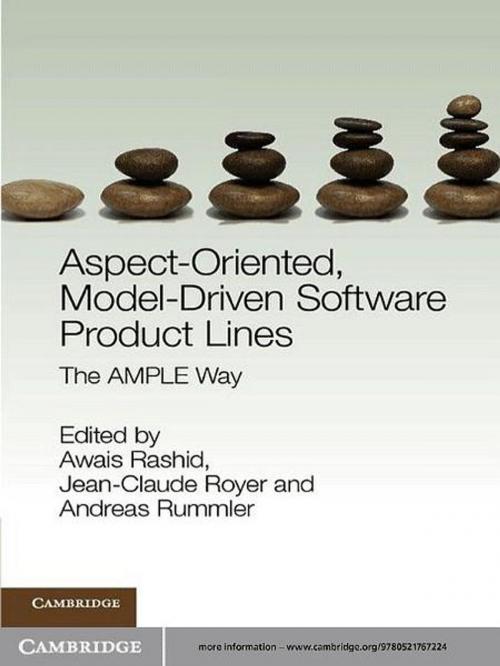Aspect-Oriented, Model-Driven Software Product Lines
The AMPLE Way
Nonfiction, Computers, Programming, Software Development, Programming Languages, General Computing| Author: | ISBN: | 9781139124560 | |
| Publisher: | Cambridge University Press | Publication: | September 8, 2011 |
| Imprint: | Cambridge University Press | Language: | English |
| Author: | |
| ISBN: | 9781139124560 |
| Publisher: | Cambridge University Press |
| Publication: | September 8, 2011 |
| Imprint: | Cambridge University Press |
| Language: | English |
Software product lines provide a systematic means of managing variability in a suite of products. They have many benefits but there are three major barriers that can prevent them from reaching their full potential. First, there is the challenge of scale: a large number of variants may exist in a product line context and the number of interrelationships and dependencies can rise exponentially. Second, variations tend to be systemic by nature in that they affect the whole architecture of the software product line. Third, software product lines often serve different business contexts, each with its own intricacies and complexities. The AMPLE (http://www.ample-project.net/) approach tackles these three challenges by combining advances in aspect-oriented software development and model-driven engineering. The full suite of methods and tools that constitute this approach are discussed in detail in this edited volume and illustrated using three real-world industrial case studies.
Software product lines provide a systematic means of managing variability in a suite of products. They have many benefits but there are three major barriers that can prevent them from reaching their full potential. First, there is the challenge of scale: a large number of variants may exist in a product line context and the number of interrelationships and dependencies can rise exponentially. Second, variations tend to be systemic by nature in that they affect the whole architecture of the software product line. Third, software product lines often serve different business contexts, each with its own intricacies and complexities. The AMPLE (http://www.ample-project.net/) approach tackles these three challenges by combining advances in aspect-oriented software development and model-driven engineering. The full suite of methods and tools that constitute this approach are discussed in detail in this edited volume and illustrated using three real-world industrial case studies.















